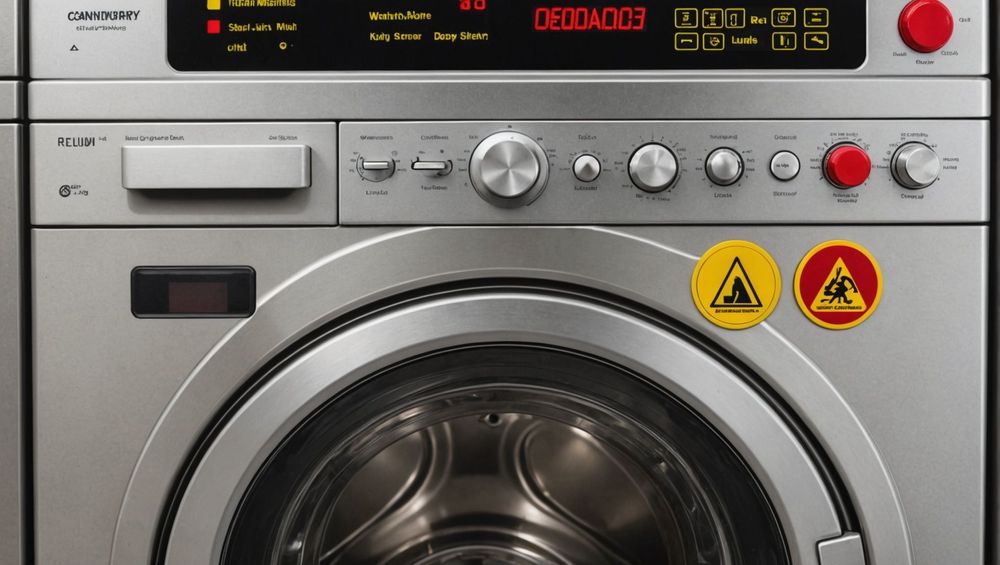
Overloading your washing machine may seem like a time-saving convenience, but it can lead to various problems that threaten both the appliance’s performance and your laundry results. When you exceed your machine’s capacity, you risk damaging its components, experiencing poorly washed clothes, and even voiding warranties. This article will explore the consequences of overloading a washing machine and offer insights into maintaining your appliance for optimal performance.
The Consequences of Overloading

When you overload your washing machine, several issues can arise that affect its functionality and longevity. Here are the major consequences you should be aware of:
- Poor Cleaning Results: Overcrowded machines may lead to uneven distribution of water and detergent, resulting in dirty or unwashed clothes.
- Increased Wear and Tear: Excess weight can strain motor components, potentially causing early wear and mechanical failure.
- Unbalanced Loads: An overloaded machine can become imbalanced during the spin cycle, leading to a noisy operation and possible machine movement.
- Higher Energy Consumption: Running an overloaded washer may force it to work harder, increasing your utility bills.
- Possible Damage to the Machine: Over time, excessive weight can cause parts such as the belt and drum to give way, necessitating costly repairs.
Understanding Washing Machine Capacity
To prevent overloading, it’s vital to understand the capacity of your washing machine. This capacity is generally measured in cubic feet and refers to the weight of laundry the machine can effectively wash in one cycle. Most residential washers can hold between 3 to 5 cubic feet. Here are some factors to consider:
- Machine Size: Always consult your user manual to know your washer’s specific capacity.
- Weight of Fabrics: Different fabrics have varying weights; heavier textiles like towels and jeans take up more space than lighter items.
- Load Type: Mixing heavy and light items can lead to unbalanced loads; always consider the weight distribution.
- Manufacturer Guidelines: Follow the manufacturer’s recommendations to avoid warranty issues and maintain efficiency.
- Regular Maintenance: Keep an eye on your washer’s performance and have it serviced regularly to avoid sudden breakdowns.
Signs of an Overloaded Washing Machine
Recognizing the signs of an overloaded washing machine can help you correct the issue before it escalates. If you encounter any of these signs, it might be time to reevaluate your loading habits:
- Excessive Noise: If your washer produces unusual grinding or banging noises, it may be struggling to handle the load.
- Unfinished Cycles: Machines may quit mid-cycle, unable to spin or drain due to excessive weight.
- Vibrations: A shaky machine can indicate an unbalanced load, often caused by overloading.
- Clothes Not Clean: If clothes come out dirtier than when they went in, it’s a sign the washer couldn’t circulate water effectively.
- Odors: Musty smells can develop if wet clothes are crammed together without enough space to agitate.
Protecting Your Washing Machine

To protect your washing machine and ensure optimal performance, consider adopting these best practices:
- Know Your Limits: Stick to the recommended load capacity provided by your manufacturer.
- Sort Laundry: Separate heavy items from lighter ones to maintain balance during washing.
- Mix Fabrics Wisely: Avoid loading different types of fabrics that may not wash effectively together.
- Regular Care: Keep your machine clean and inspect hoses and belts routinely for wear and tear.
- Use Appropriate Settings: Adjust wash cycles based on the type and load of laundry to enhance efficiency.
Conclusion
Overloading your washing machine is an all-too-common mistake that can lead to unnecessary damage, poor laundry results, and higher utility costs. By being aware of your washer’s capacity and adopting sound laundry practices, you can extend the life of your appliance and keep your clothes clean and fresh. Ultimately, a little care and attention can go a long way in ensuring your washing machine continues to perform at its best for years to come.
FAQs
1. How can I tell if my washing machine is overloaded?
Signs of an overloaded washing machine include unusual noises, unfinished cycles, excessive vibrations, unclean clothes, and musty odors coming from wet fabric.
2. What is the average load capacity of a washing machine?
Most residential washing machines have a load capacity of 3 to 5 cubic feet, depending on the model and size.
3. Can overloading my washing machine void the warranty?
Yes, exceeding the manufacturer’s recommended load capacity can potentially void the warranty, as it may cause undue wear and damage to the appliance.
4. What types of fabrics should I avoid washing together?
It’s advisable to avoid mixing heavy items like towels or blankets with lighter fabrics such as delicate garments and t-shirts to prevent imbalance and ineffective washing.
5. How often should I have my washing machine serviced?
It’s recommended to service your washing machine at least once a year to catch any potential issues and maintain optimal performance.




